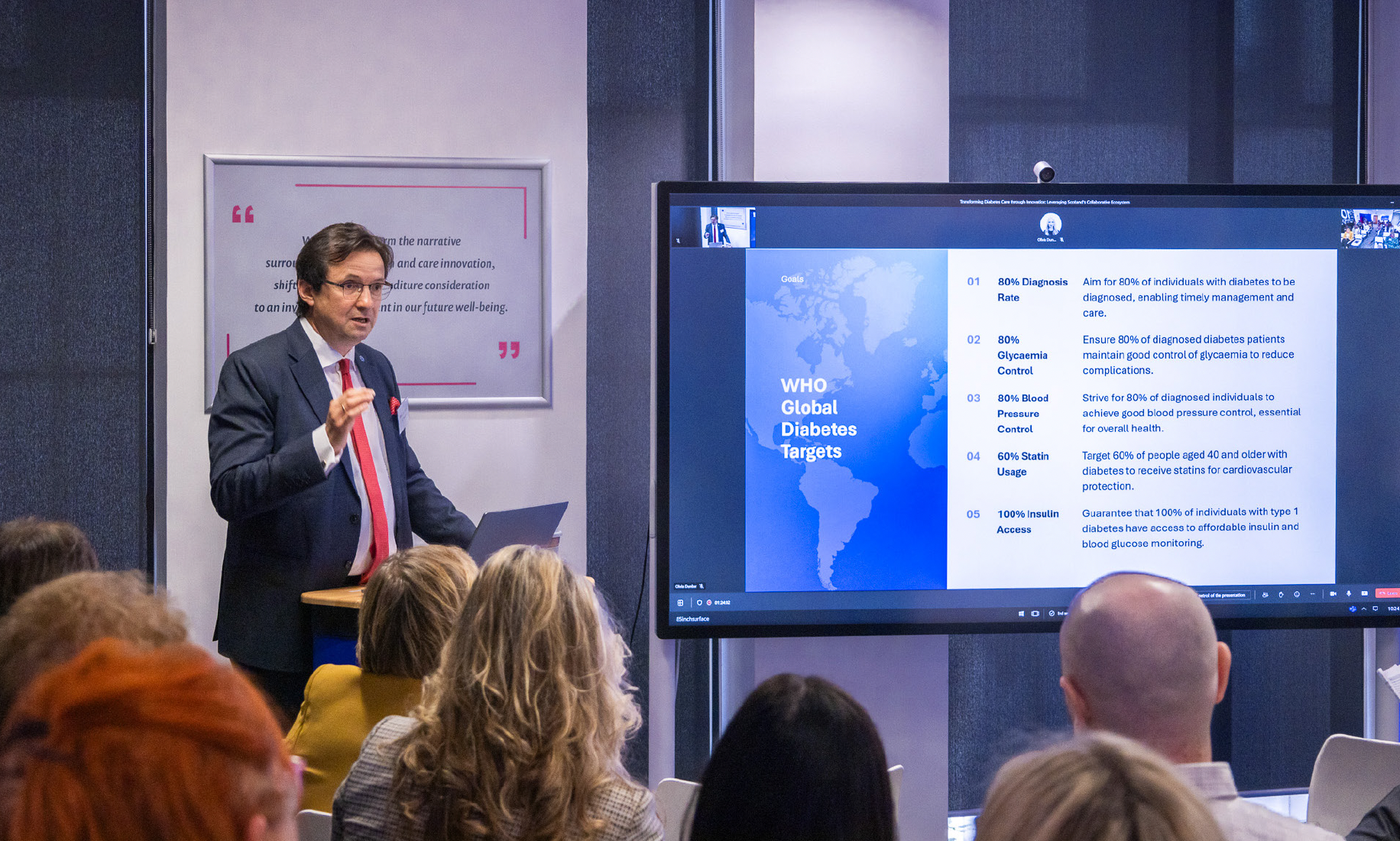
Berlin-Brandenburg is a living lab for a health data society
- TRANSFORMERS.health
- October 8, 2025
- DATA2VALUE INITIATIVE
- 0 Comments
Berlin-Brandenburg is emerging as a model for digital health, where hospitals, research institutes, startups, and industry partners collaborate to effectively harness health data. Antonia Jung, Senior Manager for MedTech, Care, and Digital Health at Berlin Partner, explains how this ecosystem is shaping Germany’s health data future.
Health data remains underused in Germany. What are the most urgent steps to make it more accessible and useful for patient care?
Germany needs to focus on interoperability, trust frameworks, and real-world testing environments, while also raising awareness of existing solutions. Berlin-Brandenburg has taken essential steps in this direction. Reallabore test digital health applications directly in clinical practice. For example, the BloG3 project uses blockchain to safeguard data sovereignty in oncology, and TEF-Health accelerates the certification of AI and robotics in healthcare. These initiatives illustrate how structured innovation and cross-sector collaboration can help unlock the full potential of health data.

Artur Olesch talks to…
The internationally recognized journalist and editor, specializing in healthcare digitalization, talks on behalf of Lemonmint to Those Who Make.
Berlin Partner operates as a public-private model. How does this help connect government, industry, and science to foster healthcare innovation?
Berlin Partner, as a public-private partnership, harmonizes entrepreneurial drive with societal needs by creating a framework for collaboration. Together with the Economic Development Agency Brandenburg (WFBB), it coordinates the HealthCapital cluster, which brings together more than 700 companies, over 40 academic institutions, and over 150 clinics. This model facilitates technology transfer and supports the incubation and acceleration of startups. It also underpins initiatives like the BIH Digital Health Accelerator and fosters exchange between stakeholders through events such as DMEA or smaller expert gatherings. In this way, Berlin Partner has established a structure that serves as a blueprint for ecosystem-driven innovation.
Berlin-Brandenburg is home to the WHO Hub for Pandemic Intelligence, Charité, the Berlin Institute of Health, numerous pharmaceutical and medtech companies, as well as a highly active startup community.
Hospitals, academia, government, and industry often follow different agendas. What works in Berlin-Brandenburg to align these interests and create real value?
The key is mission-driven collaboration. Projects such as Telemed5000 or the Charité-Vivantes digital patient record demonstrate how cross-sector partnerships can work in practice. The HealthCapital cluster plays a coordinating role here, aligning efforts through structured governance and strategically directing funding. This ensures that diverse stakeholders remain focused on shared goals and that innovation delivers tangible benefits.
Berlin is often referred to as a “Gesundheitsstadt.” What role does the region play in linking care providers, researchers, and industry, and how can this model influence the national debate?
Berlin-Brandenburg represents a connected health innovation ecosystem unlike any other in Germany. The region is home to the WHO Hub for Pandemic Intelligence, Charité, the Berlin Institute of Health, numerous pharmaceutical and medtech companies, as well as a highly active startup community. Nearly a quarter of Germany’s health startups are based in this region. The region’s event landscape – with highlights such as the World Health Summit and DMEA – further strengthens collaboration and exchange. This dense network not only fosters regional progress but also sets standards for national deployment.
Startups in Berlin and Brandenburg are pushing digital health solutions. How can they improve the use of health data, and what support do they need to succeed?
Startups such as X-cardiac, Nia Health, and Data4Life are pioneering new approaches in AI diagnostics and public health platforms. To succeed, they require reliable access to clinical data and testing environments, strong partnerships with hospitals and insurers, as well as financial and mentoring support. Institutions such as IBB Ventures and Brandenburg Kapital play a crucial role as investors, while incubators provide guidance for scaling. Established players in the industry can also contribute significantly by co-developing solutions and ensuring interoperability, enabling startups to integrate their innovations into the healthcare system.
Looking ahead, how can cooperation between care, research, and industry in Berlin-Brandenburg strengthen Germany’s position in building a health data society?
Berlin-Brandenburg is already demonstrating what the future might look like. Integrated care models, such as those established by the Sana Telemonitoring Center, demonstrate how patient monitoring can be reimagined. At the same time, AI and blockchain pilots are delivering tangible impact in real-world settings. By continuing to invest in ecosystem coordination, establishing robust rules for data governance, and fostering scalable innovations, the region has the potential to position Germany as a global leader in health data.
Antonia Jung is Senior Manager for MedTech, Care, and Digital Health at Berlin Partner. She will be speaking at the Data2Value Executive Dialogue on October 14, 2025, in Berlin.




